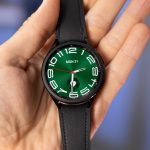A Pennsylvania man on Thursday pleaded guilty to federal fraud charges following a 2020 POLITICO investigation into a super PAC that said it was spending millions of dollars in battleground Senate races but didn’t actually exist.
The Department of Justice on Thursday announced that Christopher Richardson pleaded guilty to two charges stemming from fabricated transactions from a super PAC — one count of making a “false entry in a record” for the falsities submitted to the FEC, and one count of “access device fraud” for credit card fraud. He will be sentenced in June and faces a maximum of 20 years in prison for the former charge and 10 years for the latter, but such a severe sentence is unlikely.
A separate release from the U.S. Attorney’s Office for Washington noted that the “quick fundraising and spending attracted media scrutiny, questioning the veracity of the FEC reports.”
POLITICO reported nearly four years ago on Americans for Progressive Action USA, a super PAC that presented itself as a new, major player in elections. In filings to the Federal Election Commission, the organization said it raised over $4.8 million from a small handful of unknown donors in its first quarterly campaign filing. Then it told the FEC in late April 2020 that it was imminently dropping millions on advertising in key Senate races across the country.
Such a move would have been a big splash in the world of high-dollar political spending from an entirely unknown organization.
But POLITICO’s reporting unveiled that AFPA and its millions in spending were, in fact, a phantom. A long list of inconsistencies — like a seemingly fabricated list of vendors creating a multi-million advertising spree and untraceable donors — called into question the validity of the group.
Richardson “used fictitious names” for the super PAC’s officers to create the organization, and the “non-existent” donations were “from several fictitious individuals,” according to the press release from the Department of Justice.
An attorney representing Richardson in the case, Jarrett Colby, declined to comment.
Once POLITICO began inquiring about the reported spending to the super PAC, the organization apparently began to cover its tracks. Email addresses linked to the super PAC began to return messages as undeliverable, and it told the FEC that it was returning its (now determined to be fake) donations, writing in memo lines it was making the refunds “due to POLITICO” and “after Montellaro” — the last name of this POLITICO reporter.
In the filing that referenced POLITICO, Richardson “falsely stated that AFPA refunded the non-existent $4.8 million in donations,” the Department of Justice said. A spokesperson for the agency declined to comment further on its investigation on Friday.
At the time, campaign finance experts contacted by POLITICO were baffled why someone would go to such great lengths — and risk criminal charges — to fabricate a super PAC. The Department of Justice’s announcement shed some light on that as well. Richardson “used the alias of one of the fictitious donors to AFPA to obtain a credit card” and made over 200 transactions.
“I cannot emphasize this enough: don’t lie to the FEC,” Sean Cooksey, the Republican chair of the FEC, said in an email. “I hope this guilty plea will be a lesson to others, and I thank the Department of Justice for their efforts in this criminal case.”






